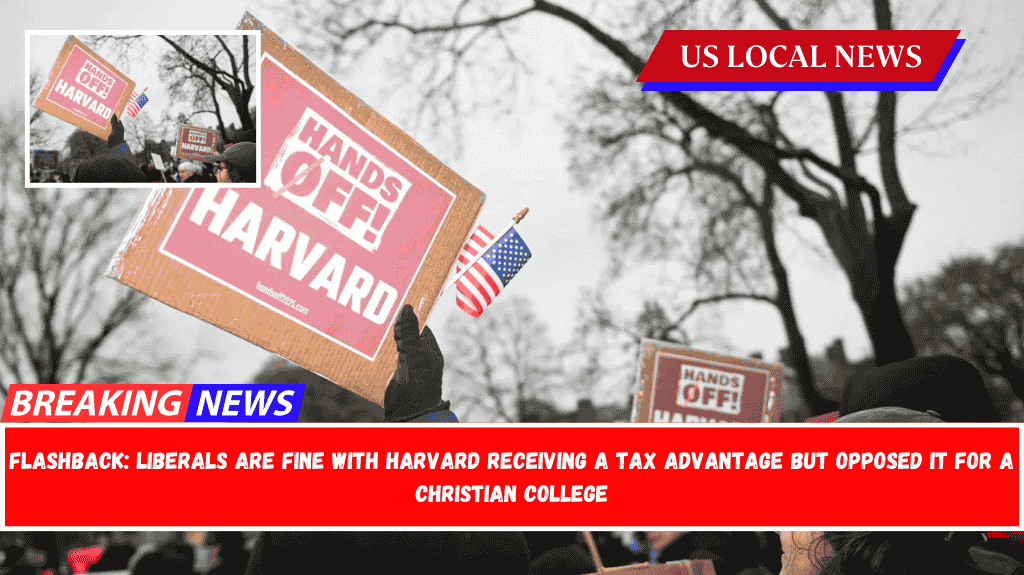Democrats are now defending elite universities such as Harvard and Columbia from threats to their federal funding and tax-exempt status for allegedly violating public policy, despite having previously championed the same legal precedent that is now used against them.
The left praised the 1983 Bob Jones University v. United States decision, which upheld the IRS’ decision to revoke tax breaks for a religious college that prohibited interracial dating.
At the time, Democrats agreed with the federal government’s position that no institution that discriminates, even on religious grounds, should receive public funds.
Now, as the Trump administration seeks to revoke Harvard’s tax-exempt status over allegations that the university tolerates antisemitism and campus unrest, the left accuses the administration of violating free speech laws in order to target ideological opponents.
“The Bob Jones case is a very strong precedent in the government’s corner on this,” said Joe Bishop-Henchman, vice president of tax policy and litigation at the National Taxpayers Union Foundation and adjunct scholar at the Cato Institute, in an interview with Fox News Digital.
“The Bob Jones precedent makes it difficult for Harvard to win. It would be much easier if that case did not exist, because I believe they will have to argue that they are being singled out and that this is political,” he said. “If the administration can argue that it’s a violation of public policy, then the Bob Jones precedent follows.”
Bob Jones University, a Christian liberal arts college in Greenville, South Carolina, currently serves over 2,700 students. In 1983, it had policies prohibiting interracial dating and marriage among students and expelled those who violated them.
The IRS determined that the school was ineligible for tax-exempt status due to its racially discriminatory policies.
The school claimed that revoking its tax-exempt status violated its religious freedom and that it was being punished for upholding sincerely held beliefs. However, the government countered that it should not provide tax breaks to organizations that violate established public policy, particularly anti-racial discrimination laws.
In the landmark Reagan-era case, the Supreme Court ruled 8–1 in favor of the federal government. The justices ruled that the IRS could deny tax-exempt status to schools that practiced racial discrimination because it violated public policy. Even though the school claimed religious freedom, combating racial discrimination was deemed a “compelling government interest.”
“That is the letter of what Bob Jones said, but maybe it shouldn’t just be one university,” says Henchman.
According to the judicial archive Oyez, the high court ruled that the institutions failed to provide the “beneficial and stabilizing influences in community life” required to qualify for taxpayer-supported special tax status. Because of their bans on interracial relationships, the schools were unable to meet this standard.
The justices concluded that racial discrimination in education was incompatible with a “fundamental national public policy.” While acknowledging the schools’ religious beliefs, the Court determined that the government may limit religious liberties when it is necessary to serve a “overriding governmental interest,” in this case, the prohibition of racial discrimination. The court noted that “not all burdens on religion are unconstitutional.”
As a result, the Trump administration claims that Harvard’s handling of antisemitism on campus should disqualify the university from maintaining its 501(c)(3) tax-exempt status. CNN, which broke the story first, reported that the IRS is expected to make a final decision soon.


















Leave a Reply